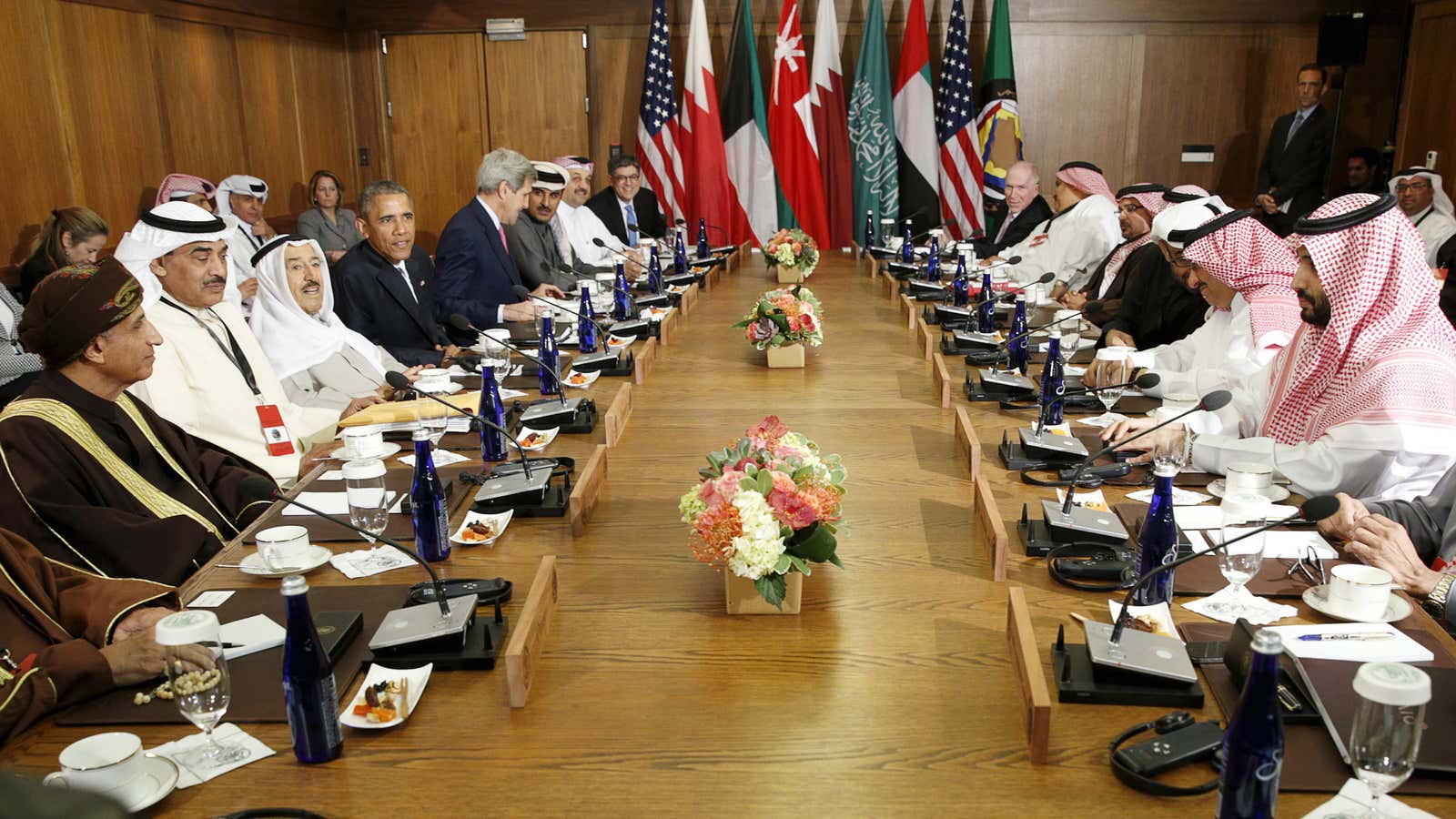Despite what conservative political leaders want you to think, the reason the Muslim world hasn’t done more to fight the Islamic State in Iraq and the Levant (ISIL) isn’t because it secretly sympathizes with the terror movement. No, the Muslim world has remained maddeningly ineffective against ISIL because it can’t agree on a unified definition of the Islamic faith.
The rise of ISIL is due to a complicated conflagration of issues, both geopolitical and ideological. But the fact remains that we could be having a much more realistic conversation about how to defeat ISIL if we first admitted a few upsetting truths. First, that the Muslim world isn’t a homogenous bloc, and second, that while most Muslims are sure the Islamic State isn’t Islamic, there’s little agreement on what is.
Geopolitics 101
Unlike the United States, “Islam” is not a country. The United States is a superpower; no Muslim-majority country is. Unlike the European Union, however, there’s no initiative, at least not overtly, for Muslim-majority countries to pool sovereignty. There’s nothing in the Muslim world comparable to the Five Eyes alliance, the North Atlantic Treaty Organization (NATO), or the Schengen Agreement. There’s not even a Muslim version of the African Union, which aspires to continental unity.
There’s no religious institution as large as the Catholic Church, either. The closest parallel is the Organization of Islamic Cooperation, or OIC, which has no ambitions or mandate to bring its member-nations closer together. Indeed, it would be hard to imagine how the OIC could. Turkey, for example, is a NATO member, while next-door neighbor Iran is one of the reasons for NATO’s European missile defense plans. Not surprisingly Turkey sides with the West, while Iran cooperates with Russia—both are OIC members and yet support opposite sides in the Syrian civil war.
This fractiousness is a political problem, certainly, but it has also made cooperation on any issue—including the threat of ISIL—that much more difficult. An overwhelming majorities of Muslims agree that the the terror movement is not Islamic, but the collective sentiment has not been translated into action.
Many pieces are arguably already in place. The Middle East is a region brimming with huge, even bloated armies—Turkey, Iran, and Egypt have massive ground forces, while Saudi Arabia and the rest of the Gulf Cooperation Council have huge defense budgets.
But it seems clear that all that firepower and recourses will be undercut by a lack of Muslim nation-state, playing the role Brazil does in South America, or America does in the West. (This was one of Samuel Huntington’s principal points in his Clash of Civilizations thesis, and in my opinion the most illuminating.) Not only does the Muslim world lack mechanisms to create tangible policies, it also can’t agree on what kind of society should follow after ISIS. How are you going to win if you don’t know what winning would look like?
Defining what is “Islamic”
There is a great amount of diversity in the Muslim-majority world, incorporating everything from secular sentiment to conservative ideology, not to mention a plethora of religions: Muslim, Christian, Jewish, Hindu, Yazidi, and Buddhist. While Islam is a common thread in many of these places, it has served more as a dividing force than a uniting one.
Politically speaking, there’s no major power in the Middle East that doesn’t incorporate Islam into its politics somehow. Iran is a theocratic Islamic republic, Turkey is governed by an Islamist party, Saudi Arabia is an Islamic absolute monarchy, ISIL represents the so-called Islamic State, and Jabhat an-Nusra believes it’s the jihadist vanguard. And they’re all at odds with each other, if not shooting and killing each other.
Travel a little farther, and very little changes: Egypt’s dictator, Sisi, is an Islamist who came to power in a coup against a democratically elected Islamist party, while democratic Tunisia’s state religion is Islam, and Pakistan’s an aspirationally democratic Islamic republic (like Afghanistan and unlike Iran). In the United Arab Emirates, part of being Emirati is being Muslim, while in Oman and Morocco, nearly absolute monarchs rule by religious right and justification.
Everyone seems to believe Islam is important, but no one seems to agree on what that means. Everyone is sure ISIL isn’t Islamic, but equally sure that their respective (and very different) interpretations of Islam are the only valid ones. It’s no wonder a relatively small band of terrorists has brought the Middle East to the boiling point.
